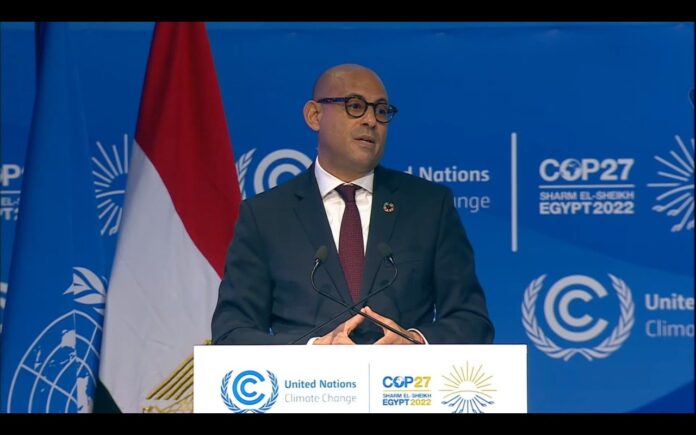RIYADH: Emissions are not coming down at the required speed even as countries are joining hands to ensure a sustainable future, according to a top UN official.
Speaking at a press conference on the sidelines of the UN Climate Change Conference, known as COP27, in Sharm El-Sheikh, Egypt, Simon Stiell, UN Climate Change executive secretary, said that mitigation should be increased to keep the 1.5-degree limit and to ensure a safer world for the future.
“Recent reports show emissions are not coming down at the required speed or scale. Mitigation is to be increased to keep the 1.5-degree limit and to ensure that we have a safer world,” said Stiell.
He added: “What science is telling us is all of our communities, all around the world, are impacted by climate change, and it will only get worse.”
He went on to say that transparency and accountability must be strengthened to consolidate trust and collaboration among countries, and it will also help to improve the monitoring of climate action.
Sameh Shoukry, COP27 president, said that geopolitical tensions are negatively impacting the journey to achieve a sustainable future.
“Current geopolitical situations and their consequences on the global economy have affected meeting the challenges associated with climate change, and fulfilling the commitments that have been made,” he said.
Shoukry also added that common efforts and collaboration between countries are necessary to achieve climate targets. “Anything that we do effectively has to be on the basis of our common efforts that leave no one behind.”
Meanwhile, delegates at the COP27 climate summit agreed to discuss whether rich nations should compensate poor countries most vulnerable to climate change for their suffering.
Much of the tension at COP27 is expected to relate to loss and damage — funds provided by wealthy nations to vulnerable lower-income countries that bear little responsibility for climate-warming emissions.
At COP26 last year in Glasgow, high-income nations blocked a proposal for a loss and damage financing body, instead supporting a new three-year dialogue for funding discussions.
The loss and damage discussions now on the agenda at COP27 will not involve liability or binding compensation, but they are intended to lead to a conclusive decision “no later than 2024,” Shoukry said.

